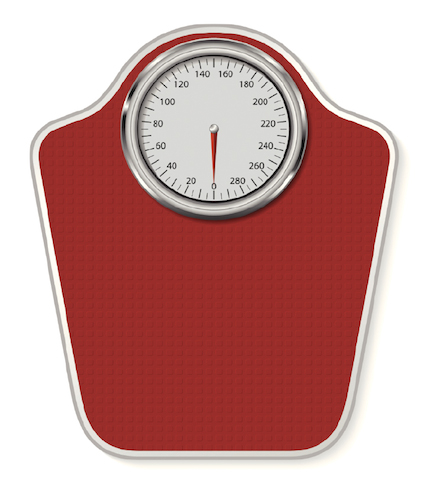Muscle Diet


The Ideal Rate of Weight Loss
There are many opinions on the best rate of weight/fat loss. Looking at all of the research, you could make an argument that more rapid weight loss leads to better medium and long-term results. However, this is probably mainly because most of these studies are conducted in “normal” people and they stay more highly motivated to stick with their diets if they see more dramatic results. So those who “only” lose a pound or two a week often feel disappointed that such sacrifice doesn’t yield more dramatic results and let their diet slip.
Presumably, as an avid gym-goer dedicated to achieving results, you probably want to know what rate of weight loss gives the best results, assuming you will actually stick to your diet (of course, there are several strategies that smart coaches use to decrease hunger and improve adherence to diet, but that’s another article).

Well, the only factual answer to this question of the optimal speed of weight loss is “it depends.” This is primarily because a very strong genetic component is involved here (it has to do with thermogenesis and “proton leaking,” which are controlled by genes such as PPAR-alpha and others that I don’t have room to elaborate upon in this column) . Most people, if they cut their calories too suddenly and aggressively, experience a fairly drastic slowdown in their metabolism, which results in a premature plateau. This rapid calorie cutting and metabolic slowdown has another big problem: If you’ve cut too many calories too quickly, you haven’t got enough left in your diet to be able to further adjust them downward without approaching starvation long before you see your bottom set of abs coming in!
So a few lucky people can probably cut their calories by 15 percent or more quite suddenly, and they’ll lose weight and continue to lose weight for several weeks or months with little or even no further adjustment. Of course, to achieve contest-level conditioning, most of them will have to make further adjustments in their diet and/or exercise, but the point is that their metabolic rate doesn’t get depressed as dramatically in response to calorie restriction.
 Unfortunately, for most people, this kind of sudden calorie deficit will result in similar initial weight loss, but within a few weeks, they will hit a plateau and need further adjustment. For these people, calorie adjustments should never be more than about six or seven percent, and while I can’t prove it, my experience is that carb and calorie cycling seems to preserve metabolic rate better.
Unfortunately, for most people, this kind of sudden calorie deficit will result in similar initial weight loss, but within a few weeks, they will hit a plateau and need further adjustment. For these people, calorie adjustments should never be more than about six or seven percent, and while I can’t prove it, my experience is that carb and calorie cycling seems to preserve metabolic rate better.
For example, I’m presently working with an English bodybuilder named Aaron Hudson who has pro-level muscle mass and competes at over 250 pounds. He came to me because every time he preps for a show, he initially rapidly loses body fat but then, at about four weeks out (when he “looks” four weeks out), he hits a plateau that just won’t budge, and he ends up onstage never quite looking as dry or conditioned as he’d like. Probably the main adjustment I’ve made with Aaron has been starting his diet by cutting about a third as many calories as usually would, and the result is that he’s never been as lean as he is now at his present body weight and we’ve only had to adjust his calories twice over about five weeks! So he’s not only losing fat as quickly as before but also preserving muscle like crazy! Obviously, we’re using several other strategies such as HIIT etc., but clearly one of the mistakes his previous coaches made was dropping too many calories too quickly!
For one part of a 3-part series on fat loss (dropping it in a healthy way!), check out our article here!

